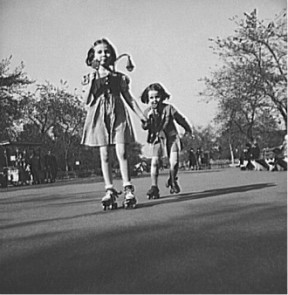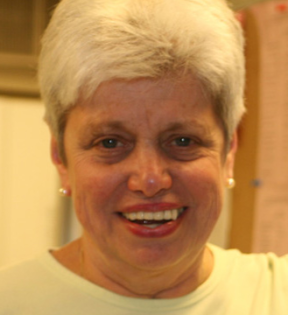July 2, 2015 8:55 am It’s Summer! Do You Know Where Your Children Are?
Of course you do! They are in camp, or playing on a baseball or soccer team, or at the club pool or taking a tennis lesson. You or another adult is with them. Or maybe they are at home, watching a movie, TV, playing a video game or being tutored. Maybe they are in your car, being driven to an activity. They are not out on their own.
Children’s free play has all but disappeared from the modern summer. Concerns for safety have curtailed the time children used to spend creating their own play scenarios out and about in the neighborhood. The change is significant.
A recent UVA study found that today’s parents (and grandparents) remember summers of nearly unlimited freedom to ride bikes, and walk through woods, parks and streets on their own or with other children. Recalling my own summers as a child in Queens, NY, I remember this: we congregated on the sidewalk right after breakfast and played imaginative games that went on for days, making up the developments as we went. We played cowboys and Indians, waged war back and forth on empty lots, played house (outside, not in), and getting married (elaborate staged weddings with many participant roles), creating our own props from whatever we could find. We changed gears by riding bikes all over the neighborhood, roller-skating, jumping rope and playing hide and seek or Red Rover in the middle of the street.
Later, when my family moved to Long Island, we played endless games of co-ed baseball in backyards or the street. We children set the foul lines, the bases and the rules. Intense arguments arose over foul or fair, safe or out. Usually disagreements were solved with negotiation and compromise. If not, we could “quit” and go home in protest until boredom drove us back outside. We rode bikes to neighborhood parks, pool, and shops (to buy candy, ice cream and comics). Our parents didn’t even think of watching us play. They had their own stuff to do.
Why review this ancient history? Only because changes in the way children play affect their development. When play is free and independent, children make it up as they go along. They practice private speech, they plan and execute, adapt and change on the fly. They develop the critical cognitive skill of “executive function,” learning to self-regulate, manage their feelings, and pay attention. Organized camp activities and sports, TV, and video games do not offer the same opportunities to take control of their lives and thus develop confidence. Emotional development is strengthened by experiences in negotiating with other children, learning to see another’s point of view, compromising, rather than by having an adult make all the calls. Physical development is hampered when children spend too much time inside, or in a car, being driven from place to place.
We can remember the freedom of our childhoods, and understand the benefits we derived from our independent lives, yet we are afraid to give our children a tenth of that freedom. We are so aware of “what could happen.” How can we balance our need to protect our children with our desire to make them self-reliant and confident? How much risk can we stand? There is no right answer; there is only a trade off between independence and safety that each family has to make.
But maybe you can find a place where you feel confident enough to take your eyes off the children for a few minutes. Maybe there is a summer home that seems safe, a grandparent’s farm, a schoolyard big enough to provide freedom, or a neighborhood where the windows are open and the backyards are big and children can have time to play and move on their own. If you find that place, you would give your children a wonderful, priceless summer gift, one that will serve them well throughout life.
Marianne Riess is the former head of the Putnam Indian Field School in Greenwich, CT. She has 40 years of experience in working with young children.



